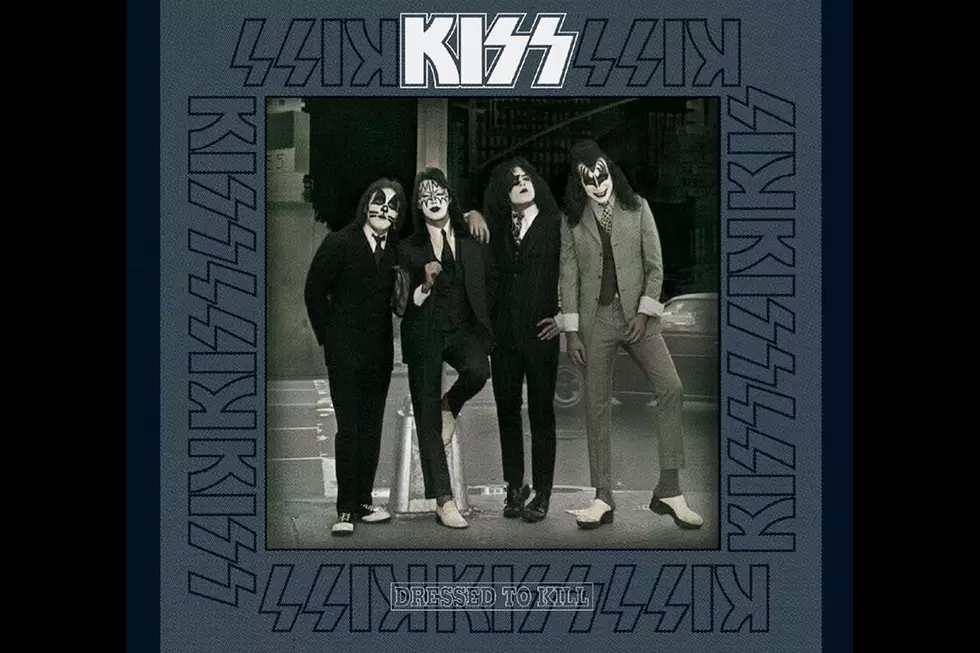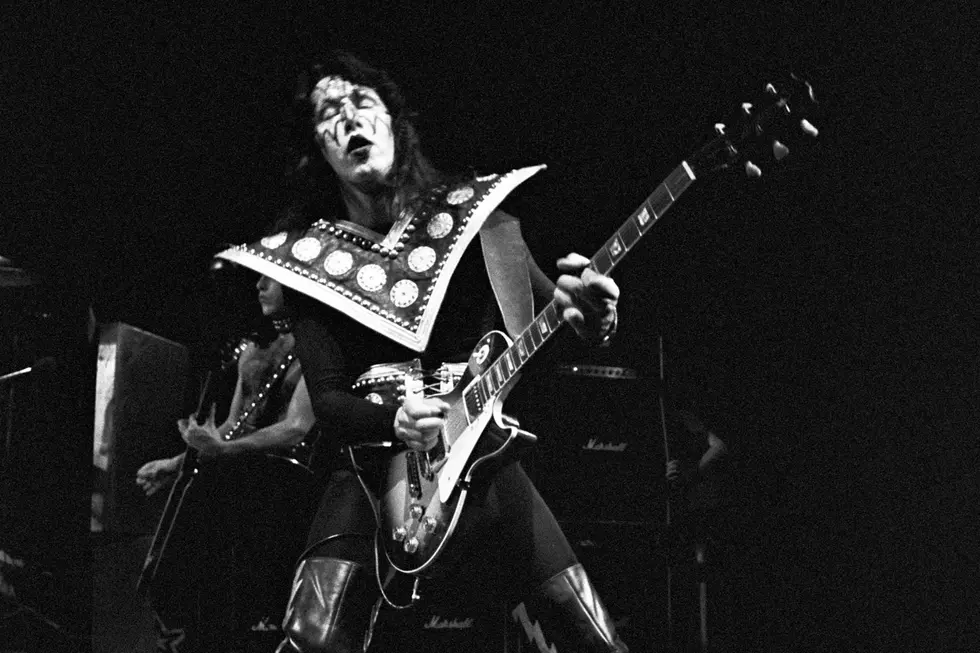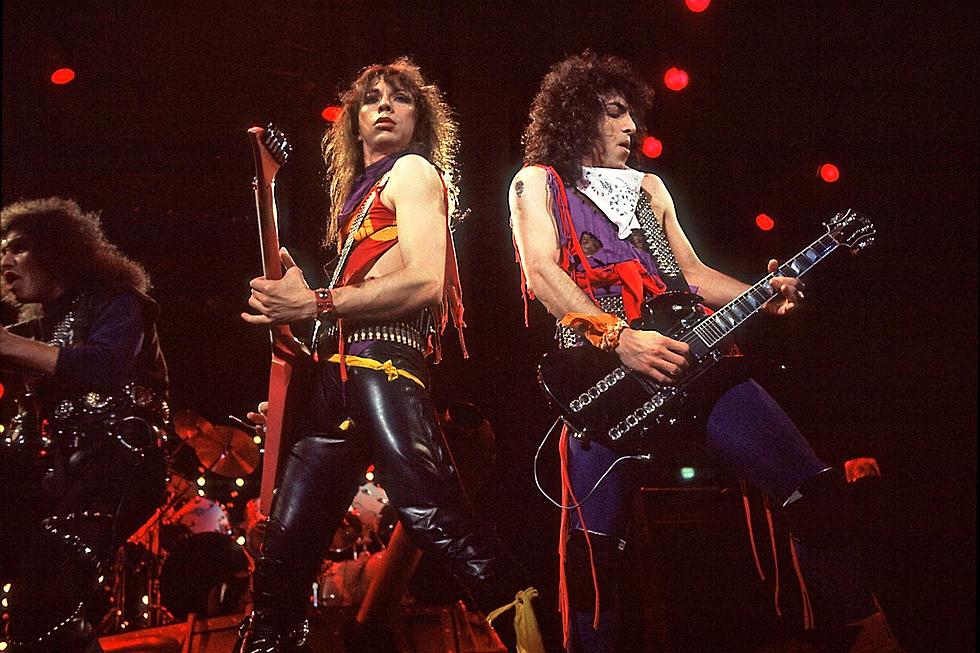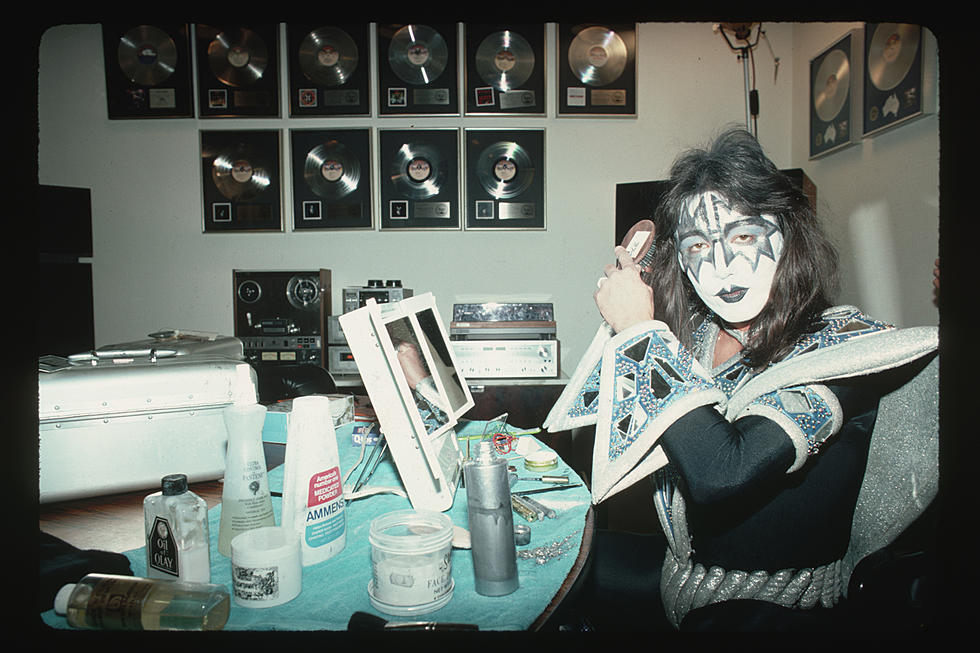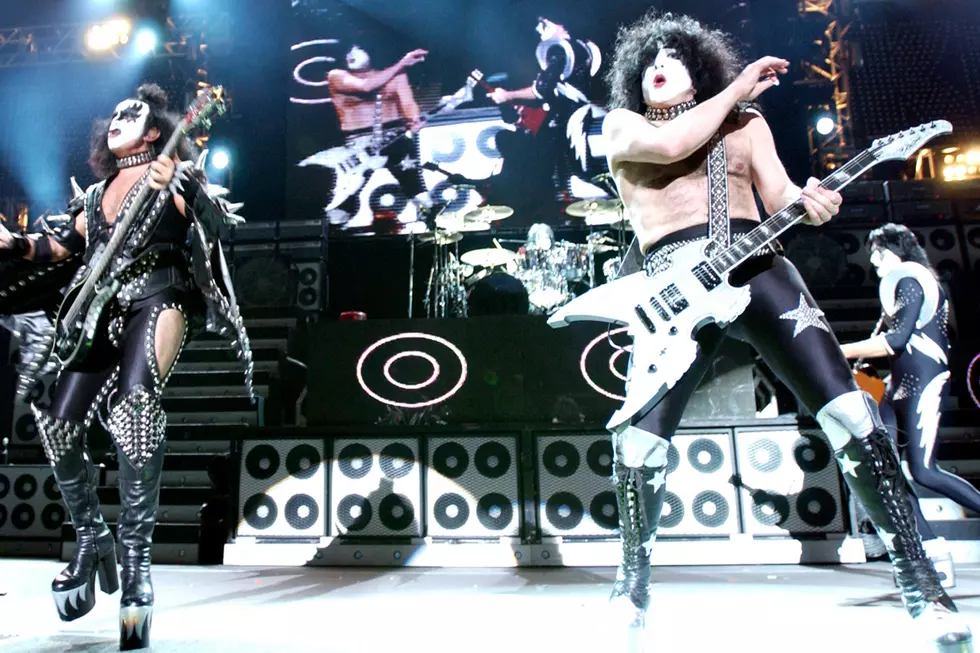
When the Current Kiss Lineup Began Their First Tour
Kiss began their Rock the Nation tour on May 8, 2004, marking the first time that the current lineup of Paul Stanley, Gene Simmons, Tommy Thayer and Eric Singer hit the road together. These shows marked the official end of their return-to-makeup, original-band reunion era.
Finding a settled membership had been a notoriously difficult task for Simmons and Stanley. Having achieved the task, they later said there were no plans to revisit it.
Singer had been the band’s drummer on two previous occasions, from 1991-96 then again from 2001-02, before rejoining ahead of the new tour. On both those occasions he Was replaced by returning original Catman Peter Criss. Thayer, a member of Kiss’ backstage team since 1994, had been onstage since 2002 when he ended Ace Frehley’s second stint as the Spaceman.
Frehley later admitted he was happy to go: “I quit because I started abusing substances and alcohol, and I also wasn’t agreeing with the direction of the way the band was going. I just felt like I was on a collision course with — I just thought I was gonna end up being a statistic."
He felt that way before, later revealing even more dramatic details of a conversation with his lawyer about a new $15 million contract before Frehley's first departure in 1982: “Every night I drive home to Connecticut, I want to drive my car into a tree because I’m not happy,” Frehley recalled. The attorney's response was: “‘Okay, Ace, I hear that, but it’s $15 million.’ He still didn’t get it.”
Thayer made his first appearance with Kiss at a private show in Jamaica, though he'd served a full-time role with the band for six years by then. For much of that time, he rehearsed to take over from Frehley in an emergency, though it never occurred. Thayer described hitting the stage as “very comfortable and normal” for an experienced performer in his own right, but added that “there was a surreal aspect to it too, thinking, ‘I’m going onstage as the guitarist of Kiss.’ I grew up loving Kiss. I was a fan since I started getting into rock ’n’ roll music when I was 11, 12 years old.”
He wasn’t sure if Stanley and Simmons would keep him around, and suspected they felt the same way. He was still aboard when the time came to part ways with Criss. After quitting the reunion lineup in 2001, Criss returned the following year, but by 2004 it was over. Criss cited the fact that he was no longer an equal member of the band's business matters.
“To have put something together, through blood, sweat and tears, and then one day to be told, ‘If you don’t do what I want, there’s the the door,’ it really blows your mind,” Criss said in 2012. “You started this thing like GM, and you were a CEO, and now you’re washing floors. It’s that kind of feeling. It was tough, being how I am, and doing things my own way. Now, I was sort of having to walk the line. It got really uncomfortable. It wasn’t fun anymore.”
Singer’s first run with Kiss occurred as a result of the death of Eric Carr. He told UCR her wasn't nervous, even though Stanley and Simmons were. “I found it almost ironic," he said in 2017. "And everything went off pretty well without a hitch. We went out like stormtroopers and I was excited to be in the band. It was good!”
Singer then stepped aside to allow the reunion to go ahead, returned in 2001, then received the call once again in 2004. “They hired me because they thought I could play their stuff they way they wanted it played,” Singer said. “And here I still am!”
The Rock the Nation tour opened in Perth, Australia, with five shows Down Under before moving to Japan. The North American leg began on June 10, 2004, and ran until Aug. 13, ending with three shows in Mexico from Aug. 14 to 17. Even though the post-reunion attendances were down, Kiss still played to around 10,000 people a night and grossed $20 million on the North American leg.
The set appeared to be a deliberate attempt to refocus from recent previous tours, which had almost exclusively featured ‘70s songs. While classics from that era including “Love Gun,” “Shout It Out Loud” and “Detroit Rock City” were still mainstays, Kiss also delivered songs from their non-makeup era like “Lick It Up” and “God Gave Rock ’n’ Roll to You II.”
That lineup cemented its position in the Kiss story with continued touring and the release of two studio albums, Sonic Boom in 2009 and Monster in 2012. Thayer and Singer became the longest-serving members except for Stanley and Simmons.
Looking back at their first farewell tour, Stanley said in 2018: “I was angry at Peter and Ace for being disrespectful toward everything we had accomplished and everything the fans were giving us. … The farewell tour was us wanting to put Kiss out of its misery. And for a while, honestly, we lost sight that we didn't have to stop – we had to get rid of them.”
Stanley later appeared to have modified some of those feelings for the 2019 book Backstage Pass. He said he was pleased to have rebuilt his relationship with Frehley, so they could enjoy the “shared magic” of their legacy once more. Stanley also noted that Criss "seems consumed by some kind of reality that his wife tells him. He's always been negative and always maintained an us-against-them mentality. I don't want that in my life."
Stanley cautiously acceding to the possibility of former members making guest appearances at some point during their farewell tour, while both Stanley and Simmons ruled out the idea of another classic lineup reunion. “That being said, I would love to see everybody at one point or another be onstage," Stanley added. "And if that doesn’t happen, it’s their choice, not mine.”
Simmons was more forceful: “Ace and Peter have gotten three chances. They were in and out of the band – fired – three times. For drugs, alcohol, bad behavior, being unprofessional … they weren’t carrying their load," Simmons said. "So, the short answer to your question is we’d love to have Ace and Peter join us here and there. And if they don’t, it’s not going to be because of us. But they’re never going to be in Kiss again.”
Stanley argued in early 2019 that Kiss was “in the best shape it's ever been, and built on a foundation of everything that came before it and built that much higher by us,” he told Billboard, hammering home the argument. “This is a celebration of Kiss and of all eras and everything that's happened.”
Kiss Lineup Changes: A Complete Guide
More From Ultimate Classic Rock

